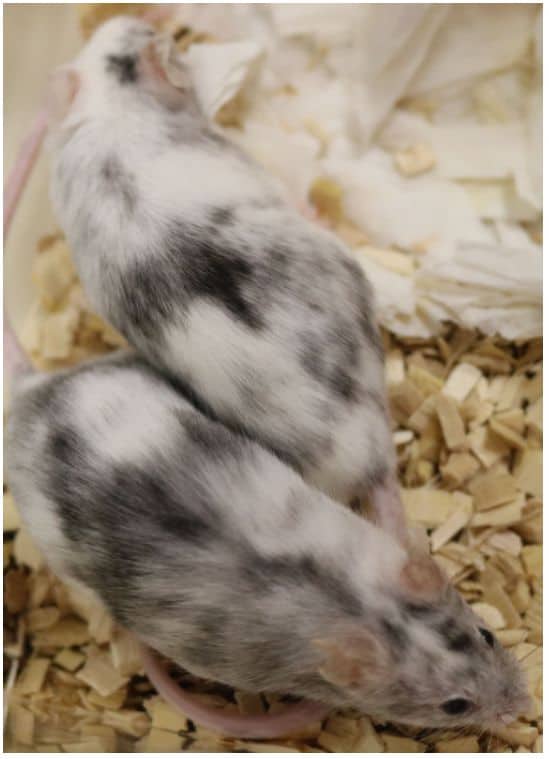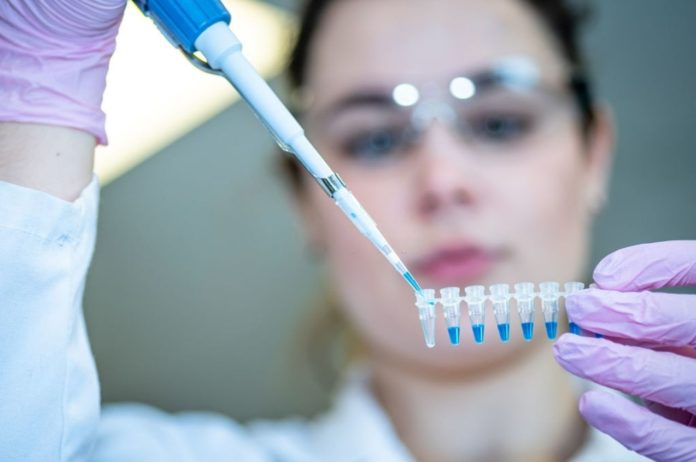Scientists create 100% Genetically modified single-sex mice litters with two elements of CRISPR-Cas9 – the Cas9 enzyme.
The Francis Crick Institute, in partnership with the University of Kent, has applied gene-editing technology to make 100% successful female-only and male-only mice litters.
This study proves how the technology could be used to improve animal wellbeing in scientific research and, potentially, agriculture.
Male or female animals are frequently required in scientific study and farming. For example, research into male or female reproduction in the laboratory involves only animals of the sex being researched. Furthermore, only female animals are necessary for agriculture for egg production and dairy herds. This means that animals of the unrequired sex are routinely culled after birth.
The researchers’ novel technology employs a two-part genetic system to inactivate embryos shortly after fertilization, allowing for the development of only the selected sex. A genetically based strategy for controlling offspring’s sex could significantly minimize culling in both industries.
The embryo selection is based on the fact that CRISPR-Cas9 is composed of two components: the Cas9 enzyme, which breaks the DNA and enables scientists to edit particular sections, and the guide RNA, which directs Cas9 to the correct position on the genome. The team placed one of the system’s components on the father’s X or Y chromosome, ensuring that it will be inherited exclusively by female or male embryos. The mother contributes the other element, which is inherited by all embryos.
They concentrated their efforts on the Top1 gene, which is required for DNA replication and repair. When an embryo was produced from a sperm and an egg, both of which contained one half of CRISPR-Cas9, the embryo’s gene editing was activated, and it was unable to develop beyond a very early stage of roughly 16 to 32 cells.
The researchers were able to completely control the sex of a litter using this way. The researchers modified the father’s X chromosome to create a male-only litter, ensuring that only females inherited the harmful mutation, and they edited the Y chromosome to create a female-only litter.

Surprisingly, the approach did not result in a 50% reduction in offspring production; rather, litter sizes were between 61% and 72% of control litters. The researchers hypothesize that this is because animals such as mice generate more eggs than necessary during each ovarian cycle, allowing for some to be lost during early development without lowering litter size. This means that when only one sex is required, fewer breeding animals will be required to produce the same number of offspring of the chosen sex.
Due to the high conservation of the Top1 gene across mammals, these findings may also apply to other animals.
Charlotte Douglas, first author and former PhD student and postdoctoral researcher at the Crick, explains: “This method works as we split the genome editing process in half, between a male and female, and it is only when the two halves meet in an embryo through breeding, that it is activated. Embryos with both halves cannot develop beyond very early cell stages.
“We’ve also shown this process works successfully in different combinations – introducing either the Cas9 or the guide RNA elements on to the mother’s or father’s chromosomes.”
Due to the fact that the offspring survive with only half of the CRISPR-Cas9 elements in their genomes, this acts as a check, preventing the sex selection from being passed down to subsequent generations, unless they are selectively bred with an individual of the opposite sex containing the remaining half. This is in contrast to genetic engineering using ‘gene-drive’ techniques, which aim to rapidly propagate a genetic mutation throughout a population.
Additionally, the gene modification had no detrimental impact on the surviving children.
According to James Turner, author and group leader of the Crick’s Sex Chromosome Biology Laboratory: “This work could have immediate and valuable impact in scientific laboratories, as we’ve shown how it is safe and effective in mice, a common mammal used in medical and scientific research. While a lot of research needs both sexes, there are areas of study where only one is needed. For example, when studying the reproductive system, sex-specific diseases, or certain hormones.”
The author, Peter Ellis, is a senior lecturer in molecular genetics and reproduction at the University of Kent, says: “The implications of this work are potentially far-reaching when it comes to improving animal welfare, but should be considered at ethical and regulatory levels.
“In particular, before any potential use in agriculture, there would need to be extensive public conversation and debate, as well as changes to legislation. On the scientific side, there is also much work to be done over a number of years. Further research is needed, first to develop the particular gene editing toolkits for different species, and then to check they are safe and effective.”
Source: 10.1038/s41467-021-27227-2
Image Credit: iStock
You were reading: A genetically based strategy for controlling offspring’s sex
